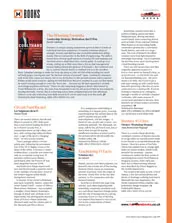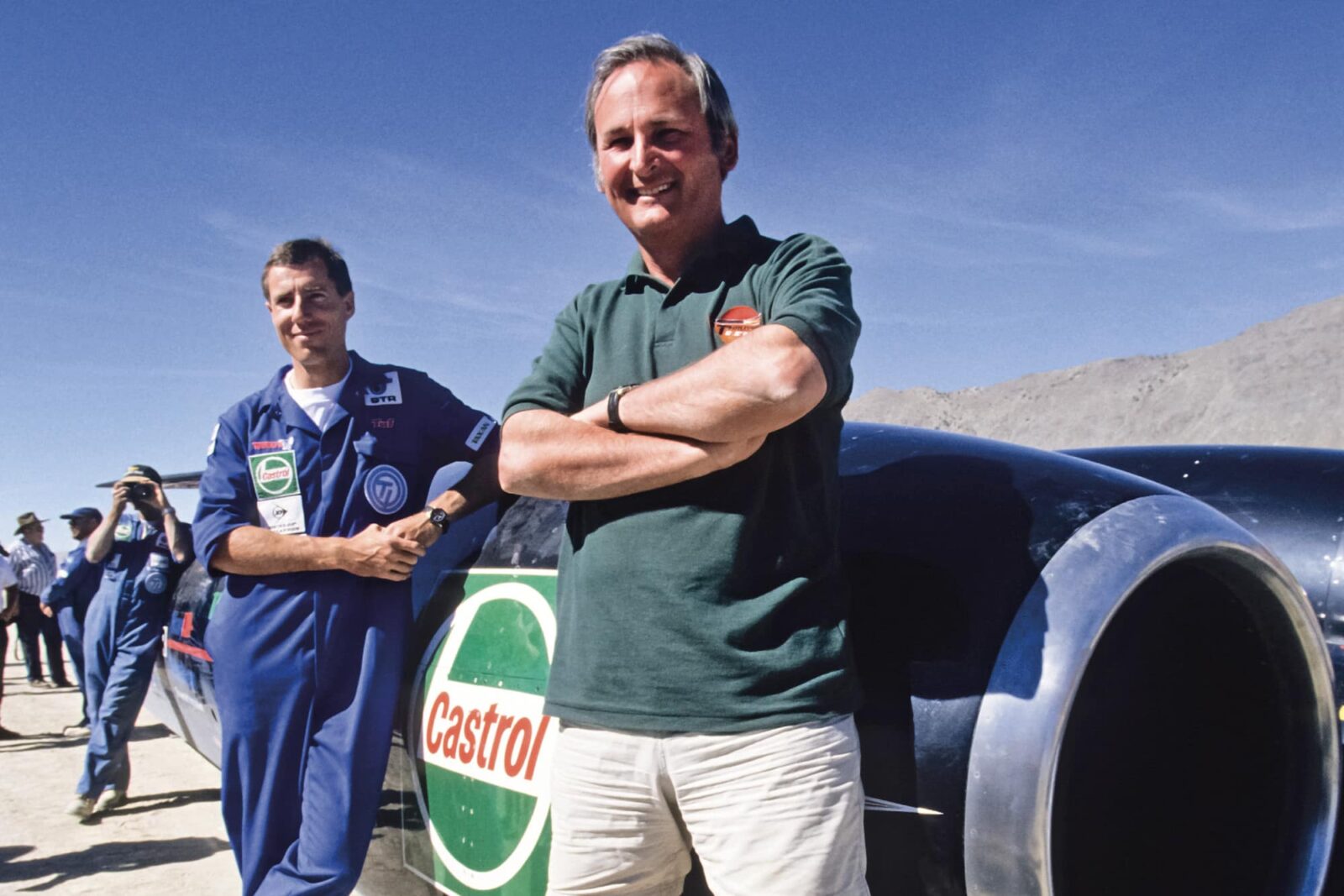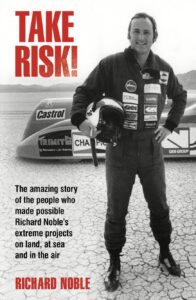
Books: July 2018
The Winning Formula Leadership, Strategy, Motivation, the F1 Way David Coulthard Formula 1 is unique among mainstream sports in that it is both an individual and team endeavour; it requires…

Richard Noble’s career is full of high-speed stories, such as three different LSR contenders
Talking with Richard Noble can be tiring. He has a lot to say, and it’s important, and it’s urgent. That’s what this book feels like – urgent. And there is a lot to say; the man has been
involved in so many schemes that three Land Speed Record attempts are just a fraction of it. And he feels strongly that his theme is important, not just to him but to British industry, education and the wider world of technical advance.
Ungrammatical though it looks, that title sums up what he wants to say. Throughout his life he has battled against people’s fear of taking risks, whether it’s the never-ending pursuit of sponsorship or fighting to persuade government officials to support his aeroplane company. All the way along he has met rebuffs and U-turns which spelled disaster – but somehow there’s always been an “and then something amazing happened” turnaround. The message is that if you batter against all the barriers with enough force, one of them will give way. And boy does Richard have that force: hearing what a thread the Thrust II and SSC projects constantly hung on, and how the threads would break just as they’d landed another lifeline, is tense reading even now.
It’s the same pattern through his other schemes – his own conviction versus others’ fear of burnt fingers. The first two LSR projects were successful; not so his ARV light aeroplane company – a clever, efficient design the market still needs, scuppered by other people’s nervousness – or the Farnborough ‘taxi’ plane, an Uber of the air before Uber was thought of, scuppered by etc, etc.
Noble is fiercely proud of what his various teams achieved, and he credits them, the sponsors who weren’t too scared to write cheques, and the firms and universities who threw themselves into his many battles. He’s especially proud of the STEM spin-off Bloodhound had with schools, much needed today, and frank that he failed to bring that one off. But he pushes on, looking at the water speed record…

– so what? He has a message to impart!
Richard Noble
Published by Evro
£19.99
ISBN: 978-1-910505-51-9
Anyone who appreciates Special Saloons will know Tony Sugden. Racing for over five decades, the cheery Yorkshireman moved from grasstrack bikes in the 1950s to saloons of all varieties, and famously his various ‘Škodas’, regular winners in the silhouette world. Even after retiring in 2003, aged 71, Tony continued to drive safety cars at Silverstone and Cadwell and is still a race steward today. A long career without great fame, yet a source of huge fun to him and those who saw him fling his so-called DAF 55 or Esprit-Cosworth through a grid of V8 Escorts and VW-Chevrolets. Self- published and a bit rough and ready, Allen’s book, much of it in Tony’s own words, nevertheless conveys the feel of club racing fuelled more by enthusiasm than cash. GC
Mike Allen, Published by Mike Allen
£20, [email protected]
Film-makers often condense a complex story to one challenge – think of The King’s Speech. It’s not often the case for a racing history, but Faster does just this. Built round the story of Lucy and Laury Schell’s Ecurie Bleue team and their Delahayes, it leads up to the 1938 Pau Grand Prix, where René Dreyfus beat Caracciola’s Mercedes W154. It’s full of detail – with 80 pages of notes! – but with an over-simplistic angle, in this case ‘how a Jewish driver and a forgotten woman beat the Nazis!’. The sensational style is more like a novel, with detailed conversations no-one could have heard and lurid emotion. Maybe I’m the wrong market; in our world we do know of Lucy Schell and also that, Pau aside, Germany firmly dominated the era.
It’s easy to point to Merc’s troubles at Pau – Caracciola’s injured leg, a tight circuit that didn’t suit the car, oiling plugs – but that’s racing. It was a fine win, but though France hailed it with joy, it was hardly the crippling blow to Germany the book seeks to suggest, and a claim that Hitler sought to destroy this Delahaye to erase the disgrace is baseless. GC
Neal Bascomb, Houghton Mifflin Harcourt
$28, ISBN 78-1-328-48987-6